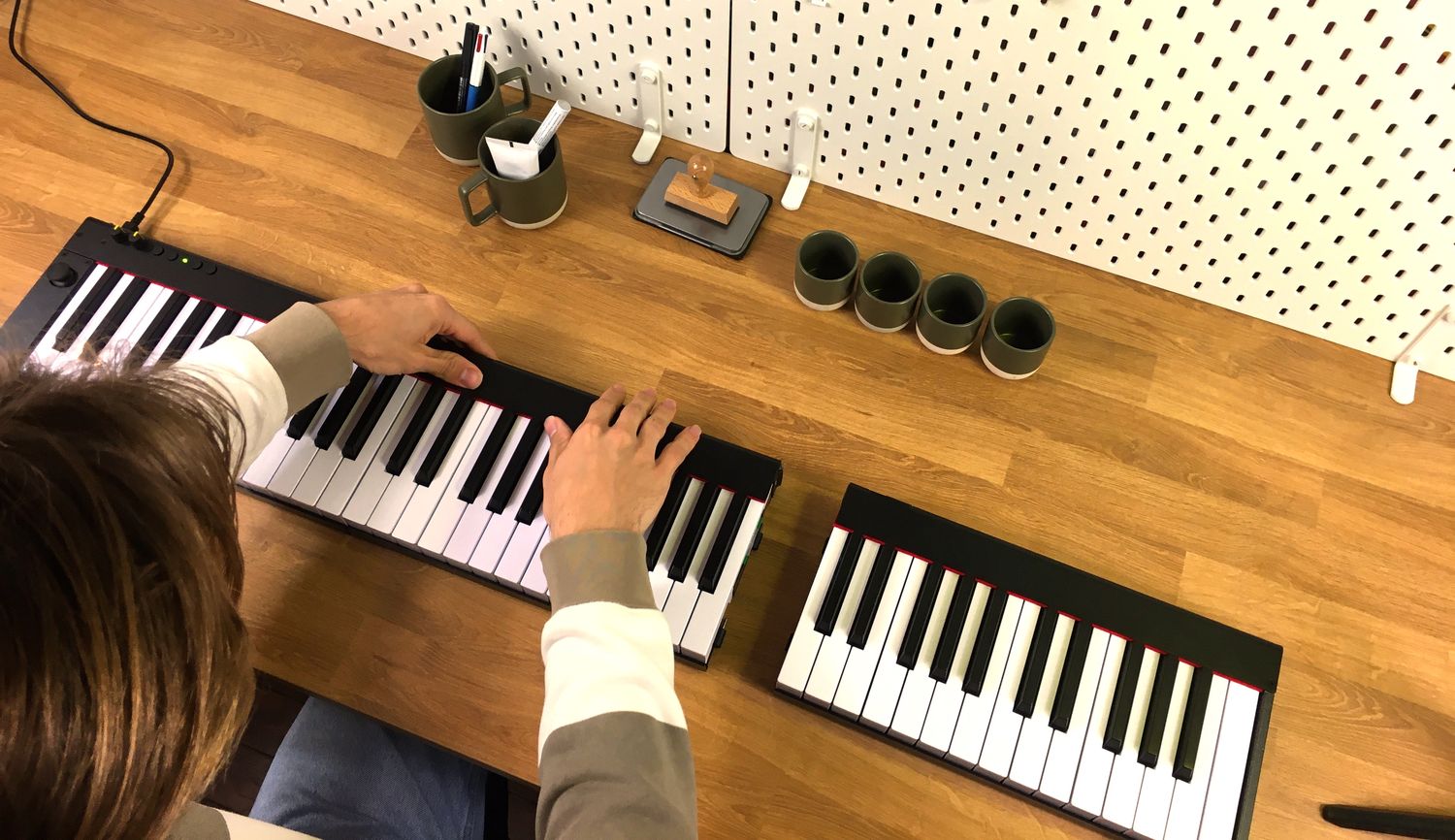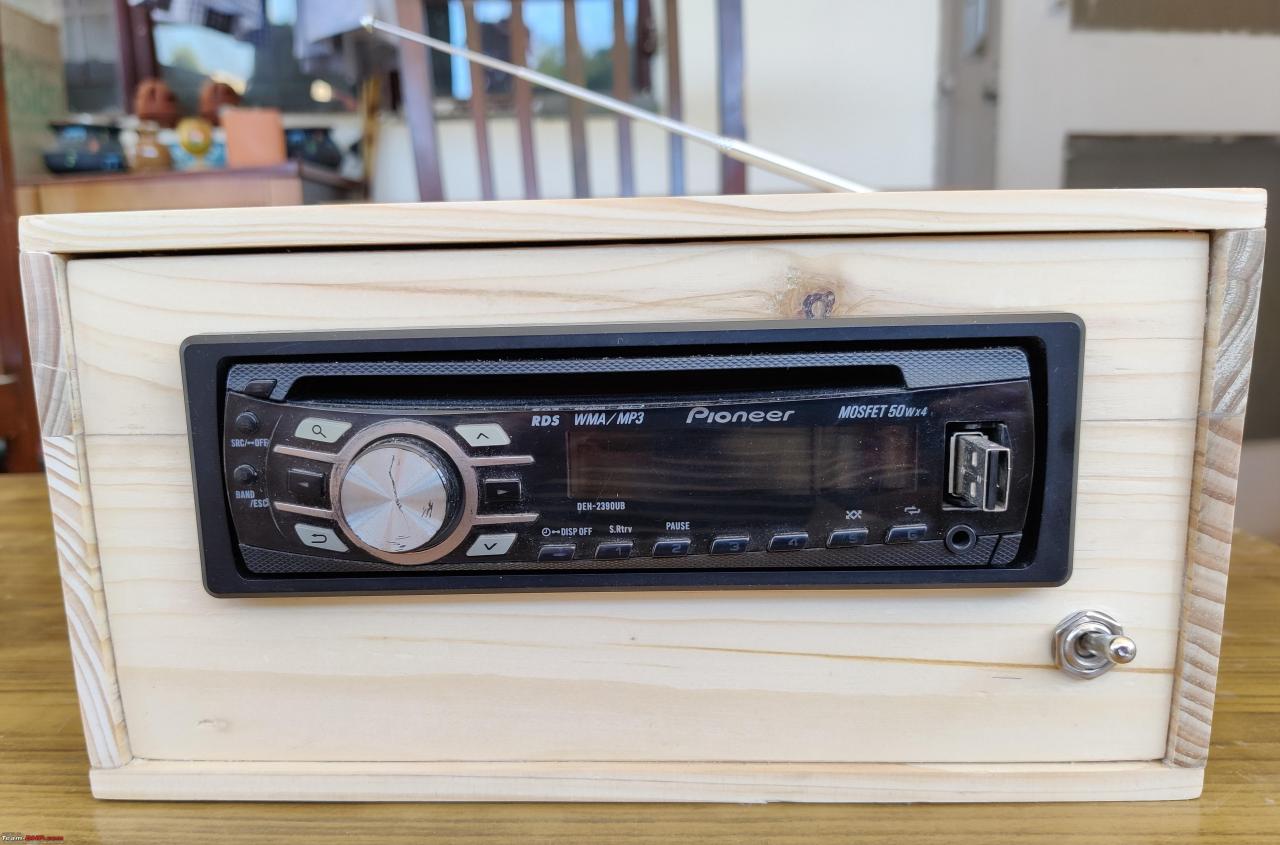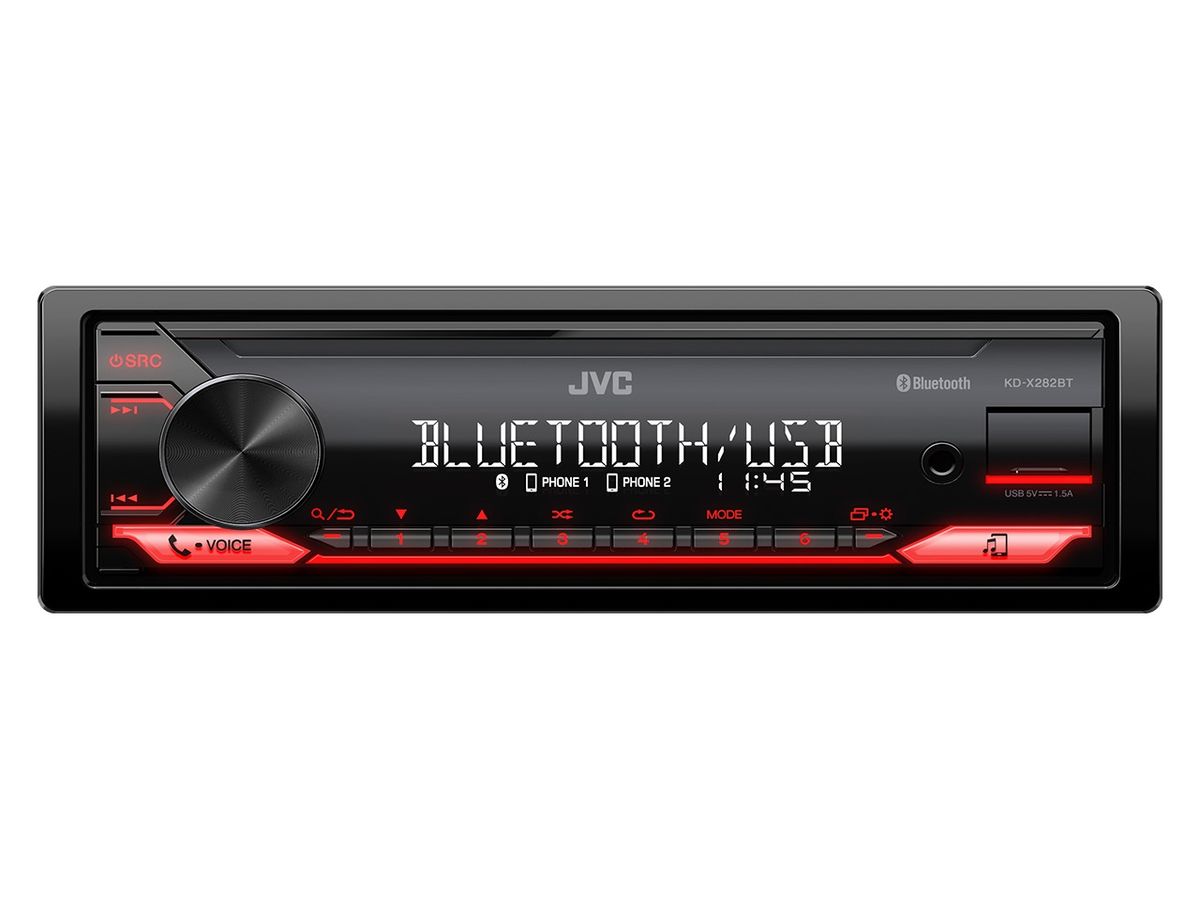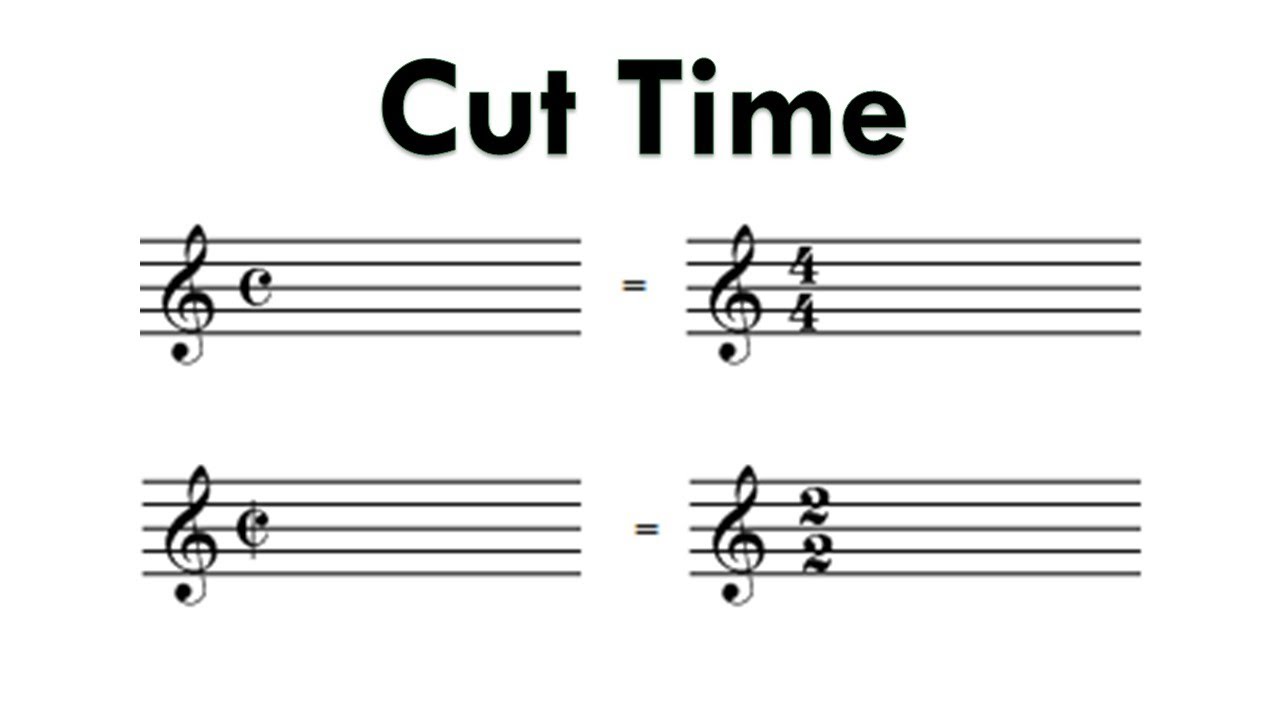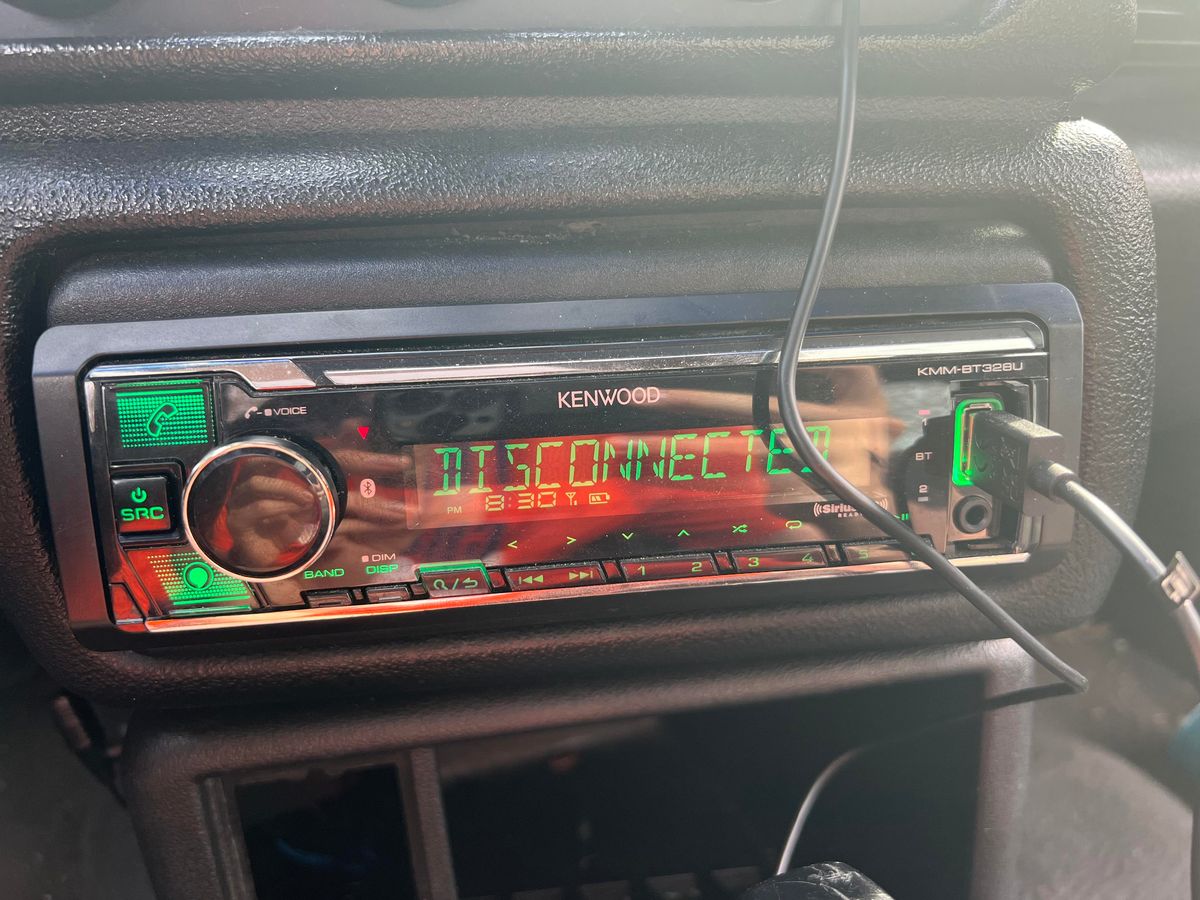Home>Production & Technology>Musician>How To Be A Full Time Musician


Musician
How To Be A Full Time Musician
Modified: January 28, 2024
Learn the best strategies and tips on how to become a successful full-time musician. Enhance your music career and discover opportunities to grow as a musician.
(Many of the links in this article redirect to a specific reviewed product. Your purchase of these products through affiliate links helps to generate commission for AudioLover.com, at no extra cost. Learn more)
Table of Contents
- Introduction
- Pursuing Your Passion: Making the Decision to Be a Full-Time Musician
- Building a Strong Foundation: Developing Your Skills and Repertoire
- Networking and Collaborating: Making Connections in the Music Industry
- Establishing Your Brand: Creating a Unique Identity as a Musician
- Booking Gigs and Touring: Maximizing Opportunities to Perform
- Managing Your Finances: Budgeting and Financial Planning for Musicians
- Promoting Your Music: Utilizing Social Media and Online Platforms
- Diversifying Your Income: Exploring Multiple Revenue Streams as a Musician
- Taking Care of Yourself: Maintaining Physical and Mental Well-Being
- Conclusion
Introduction
Becoming a full-time musician is a dream that many aspiring artists have, but it requires dedication, perseverance, and a strategic approach. Whether you’re a singer, instrumentalist, or part of a band, making the decision to pursue music as a career is both exciting and challenging. While the road to being a full-time musician may not be easy, the rewards are gratifying. From performing on stage in front of a lively audience to sharing your music with the world, a career in music allows you to express your creativity and connect with others on a deep, emotional level.
As a full-time musician, you have the freedom to create and explore different genres and styles, constantly evolving as an artist. However, it’s important to remember that being a full-time musician is not just about the music itself. It involves managing various aspects of your career, such as building a strong foundation, networking, branding, booking gigs, managing finances, promoting your music, and taking care of your physical and mental well-being.
In this article, we will delve into the key steps and strategies to help you become a successful full-time musician. Whether you’re just starting out or looking to take your music career to the next level, these insights and tips will provide valuable guidance and inspiration. So, let’s dive in and explore the exciting world of being a full-time musician!
Pursuing Your Passion: Making the Decision to Be a Full-Time Musician
Deciding to pursue a career as a full-time musician is a significant step, as it requires a strong commitment to your passion and a willingness to face the challenges that may arise. Family and friends might express concerns about the stability or financial security of a music career, but if music is your true calling, it’s important to follow your heart.
One of the first things to consider when making the decision to be a full-time musician is your level of dedication and determination. Are you willing to put in the necessary effort to improve your skills, expand your knowledge, and continuously work towards your goals? Being a full-time musician requires persistence, resilience, and a strong work ethic.
It’s also crucial to assess your financial situation. Transitioning into a full-time music career may involve sacrificing your stable income from a regular job. Are you prepared to navigate the financial uncertainties that come with the territory? It’s essential to have a clear understanding of your financial responsibilities and create a realistic budget to ensure you can sustain yourself during the early stages of your music career.
Additionally, it’s important to surround yourself with a supportive network of people who believe in your talent and aspirations. Seek out fellow musicians, mentors, and industry professionals who can offer guidance and support as you navigate the music industry. Building a strong network of connections can open doors to opportunities and collaborations that can accelerate your growth as a musician.
Another crucial aspect of pursuing a full-time music career is time management. Balancing practice and performance commitments with other responsibilities can be challenging, especially if you’re juggling part-time jobs or educational pursuits. Setting clear priorities and establishing a disciplined schedule will help you make the most of your available time and ensure steady progress towards your goals.
Remember, pursuing your passion as a full-time musician is a journey that requires continuous learning and growth. Embrace the challenges, stay focused on your goals, and never lose sight of the joy that music brings to your life. By making the decision to be a full-time musician, you’re embarking on an extraordinary path filled with opportunities for personal and artistic fulfillment.
Building a Strong Foundation: Developing Your Skills and Repertoire
To thrive as a full-time musician, it is essential to build a strong foundation by continuously developing your skills and expanding your repertoire. Mastery of your instrument or vocal abilities is key to standing out in a competitive music industry.
Begin by investing time in regular practice sessions. Design a practice routine that focuses on technical exercises, playing scales, and learning new musical concepts. This will not only improve your technical proficiency but also enhance your overall musicianship.
In addition to honing your instrumental or vocal skills, it’s important to diversify your musical repertoire. Explore various genres and styles, and challenge yourself to learn new songs and pieces that showcase your versatility as a musician. Building a diverse repertoire will not only attract a wider audience but also increase your chances of landing different types of gigs and opportunities.
In today’s digital age, it’s essential to stay abreast of the latest technological advancements in the music industry. Take advantage of software, apps, and online resources that can aid in practicing, recording, and composing music. Embrace technology as a tool to enhance your creativity and streamline your music production process.
Aside from technical skills, developing your ear training and music theory knowledge will significantly impact your musicianship. Improving your ability to recognize and recreate melodies, harmonies, and rhythms by ear will enable you to collaborate more effectively with other musicians and adapt to different musical contexts.
While self-study is valuable, seeking guidance from experienced instructors or attending music workshops and classes can accelerate your growth as a musician. These educational opportunities provide valuable insights, feedback, and a chance to learn from professionals who have mastered their craft. Additionally, participating in jam sessions and open mic nights can help you gain confidence and refine your performance skills in a live setting.
Remember, building a strong foundation as a musician is an ongoing process. Embrace a growth mindset, stay dedicated to your practice routine, and be open to challenging yourself with new musical concepts and genres. By continuously developing your skills and expanding your repertoire, you will establish yourself as a versatile and sought-after musician in the industry.
Networking and Collaborating: Making Connections in the Music Industry
In the music industry, networking is a crucial aspect of advancing your career as a full-time musician. Building a strong network of connections can open doors to new opportunities, collaborations, and exposure. Here are some strategies to help you make valuable connections in the music industry:
- Attend Music Events and Conferences: Participate in music industry events, conferences, and workshops where you can meet other musicians, industry professionals, and like-minded individuals. Take advantage of networking opportunities during these events to exchange contacts and build relationships.
- Utilize Social Media: Use platforms like Instagram, Twitter, Facebook, and LinkedIn to connect with other musicians, music bloggers, venues, and industry influencers. Engage with their content, share your own work, and initiate conversations to foster connections.
- Collaborate with Other Artists: Collaborating with fellow musicians can lead to new creative ideas and exposure to different audiences. Reach out to artists whose work aligns with your style and propose collaboration projects such as recording songs together, co-writing, or performing at each other’s gigs.
- Join Music Associations and Organizations: Become a member of music associations and organizations that align with your genre or area of interest. These groups provide networking opportunities, exclusive events, educational resources, and support for musicians.
- Build Relationships with Venue Owners and Promoters: Establishing connections with venue owners, event promoters, and booking agents is essential for securing gigs and performances. Attend local gigs, open mics, and showcase events to meet these industry professionals and showcase your talent.
- Offer Your Skills to Other Artists: Volunteer your musical skills or offer to play as a session musician for other artists’ recordings or live performances. This not only provides exposure but also allows you to connect with other musicians and industry professionals.
- Stay Engaged in Online Music Communities: Join online forums, discussion boards, and music communities where you can interact with fellow musicians and industry experts. Participate in conversations, ask questions, share your experiences, and offer support to build meaningful connections.
Remember, networking is more than just collecting contacts. Building genuine relationships based on mutual respect and support is crucial in the music industry. Nurture your connections by attending industry events regularly, keeping in touch with your network, and supporting the work of other musicians. By cultivating a strong network, you increase your chances of discovering new opportunities and collaborations, and ultimately accelerating your music career as a full-time musician.
Establishing Your Brand: Creating a Unique Identity as a Musician
In the highly competitive music industry, establishing a strong brand and creating a unique identity as a musician is essential for standing out from the crowd. Your brand is what sets you apart and creates a lasting impression on your audience. Here are some key steps to help you establish your brand and cultivate a unique identity as a musician:
- Define Your Unique Style and Image: Take the time to identify your musical style and the image you want to project. Consider your genre, musical influences, and personal values. This will help you create a cohesive and authentic brand that resonates with your target audience.
- Create a Memorable Logo and Visual Identity: Design a visually appealing logo and consistent visual elements that represent your brand. This includes your website, album covers, merchandise, and social media profiles. Consistency in your visual identity helps in creating recognition and building a strong brand persona.
- Develop Compelling Bio and Artist Statement: Craft a compelling and concise biography that highlights your musical journey, accomplishments, and unique qualities. Additionally, write an artist statement that expresses your artistic vision and connects with your audience on a deeper level.
- Curate a Consistent Online Presence: Maintain a professional, up-to-date, and consistent online presence across various platforms such as your website, social media, and streaming platforms. Regularly engage with your audience by sharing updates, behind-the-scenes content, and personal glimpses into your life as a musician.
- Engage with Your Fans: Build a strong relationship with your fans by responding to their comments, messages, and inquiries. Encourage them to actively participate in your journey through contests, giveaways, and exclusive content. This level of engagement not only fosters loyalty but also helps you understand your audience better.
- Partner with Influencers and Collaborators: Collaborating with influencers and fellow artists can expand your reach and introduce your music to new audiences. Look for opportunities to work with influencers who align with your brand and have an engaged following. Collaborations with other musicians can also create unique and memorable music experiences for your listeners.
- Showcase Your Authenticity and Story: Your authenticity and personal story are powerful tools for connecting with your audience. Share a glimpse into your journey as a musician, your inspirations, and the emotions behind your music. Authenticity fosters a deeper connection with your listeners and helps them relate to your music on a personal level.
- Consistently Release Quality Music: Your music is at the core of your brand. Aim to consistently release high-quality music that reflects your unique style and resonates with your audience. Strive for excellence in songwriting, production, and performance to leave a lasting impact on your listeners.
Remember, building your brand as a musician is an ongoing process that requires time, effort, and consistency. Stay true to yourself, strive for excellence, and continuously refine your brand as you grow as an artist. By establishing a unique identity and cultivating a strong brand, you will create a lasting presence in the music industry and attract a dedicated fanbase that supports your journey as a full-time musician.
Booking Gigs and Touring: Maximizing Opportunities to Perform
Booking gigs and touring is a vital aspect of being a full-time musician. It allows you to connect with your audience, gain exposure, and build a dedicated fanbase. Here are some strategies to help you maximize opportunities for performing:
- Research and Identify Potential Venues: Identify venues that align with your musical style and target audience. Research local bars, clubs, coffee shops, concert halls, festivals, and music events where you can showcase your talent. Look for opportunities to perform in a variety of settings to diversify your performance experiences.
- Promote Yourself to Venue Owners and Promoters: Craft a compelling press kit that includes your bio, professional photos, music samples, and performance videos. Reach out to venue owners and promoters directly, either through email or social media, and showcase why your music would resonate with their audience. Personalize your pitch and highlight any unique aspects about your music or live performances.
- Network with Other Musicians: Collaborate and build relationships with other musicians in your local music scene. By supporting and working with other artists, you may gain opportunities to perform at their gigs or events, which can expose you to new audiences and expand your network.
- Utilize Online Platforms for Booking: Websites and platforms like GigSalad, Sonicbids, and ReverbNation provide valuable resources for booking gigs. Create a compelling artist profile, showcase your music and performance videos, and actively apply for gigs in your desired locations.
- Engage with Local Music Communities: Attend local music community events, open mics, and jam sessions to connect with fellow musicians and industry professionals. Building relationships within your local music scene can lead to valuable gig opportunities and recommendations.
- Consider DIY Touring: If you’re ready to expand beyond your local area, consider organizing your own tour. Research cities and venues that are receptive to independent artists, and plan a tour route that makes logistical sense. Utilize online resources, such as Indie on the Move, to book gigs in different cities and plan your tour effectively.
- Stay Active on Social Media: Utilize social media platforms to promote your upcoming gigs and performances. Create engaging content, such as behind-the-scenes footage, teaser clips, and live stream performances, to generate excitement and attract attendees. Encourage your followers to share the news of your upcoming shows with their networks.
- Create an Email Newsletter: Build an email list of your fans and supporters to keep them informed about your upcoming gigs. Send regular newsletters with details about your performances, ticket information, and any special promotions or perks. Encourage your fans to forward the newsletter to their contacts and bring friends to your shows.
- Follow up and Show Appreciation: After performing at a gig, make sure to thank the venue owner, promoter, and audience for the opportunity and support. Maintain a positive relationship with the people who book you, as their continued support can lead to repeat bookings and referrals.
Remember, booking gigs and touring requires persistence and perseverance. Don’t be discouraged by rejection or initial setbacks. Continuously work on improving your live performances, building relationships, and expanding your network. By maximizing your opportunities to perform, you’ll gain valuable experience and exposure, paving the way for a successful career as a full-time musician.
Managing Your Finances: Budgeting and Financial Planning for Musicians
Managing your finances effectively is crucial for sustaining a successful career as a full-time musician. While the passion for music drives you, understanding and managing your financial resources will provide the stability and support needed to thrive in the industry. Here are some key steps for budgeting and financial planning as a musician:
- Create a Budget: Start by assessing your current income and expenses. Evaluate your fixed costs (rent, utilities, insurance) as well as variable expenses (travel, gear, marketing). Set a realistic budget that allows you to cover your essential expenses and allocate funds for savings and investments.
- Separate Personal and Business Finances: Maintain separate bank accounts for your personal and music-related expenses. This separation will make it easier to track your income and expenses for tax purposes and financial planning.
- Track Your Income and Expenses: Keep a record of all your income sources, whether it’s from performance fees, merchandise sales, or streaming revenue. Similarly, track all your business-related expenses, such as gear maintenance, studio rental, and marketing costs. Use accounting software or spreadsheets to organize and analyze your financial data.
- Save for Taxes and Emergencies: Set aside a portion of your income for taxes and unexpected expenses. As a self-employed musician, you may be subject to self-employment taxes and other tax obligations. Consult with a tax professional to understand your specific tax requirements.
- Explore Multiple Revenue Streams: Diversify your sources of income to ensure financial stability. In addition to performing gigs, consider other revenue streams, such as teaching music lessons, songwriting for others, session work, and licensing your music for films, commercials, or TV shows.
- Invest in Your Music Career: Allocate a portion of your budget for investing in your music career. This may include marketing and promotional activities, professional development, gear upgrades, or studio recording expenses. Prioritize investments that will contribute to your long-term growth as a musician.
- Seek Financial Advice: Consult with a financial advisor or accountant who specializes in working with musicians. They can provide valuable insights and guidance on tax planning, retirement savings, and financial strategies that align with your specific needs and goals.
- Regularly Review and Adjust: Regularly review your budget and financial performance to assess your progress and make necessary adjustments. Analyze your income sources, expenses, and return on investments. Adapt your financial plan as your music career evolves.
Remember, managing your finances effectively as a musician requires discipline and careful planning. By maintaining a clear understanding of your income and expenses, diversifying revenue streams, and investing wisely in your music career, you can achieve financial stability and set yourself up for long-term success as a full-time musician.
Promoting Your Music: Utilizing Social Media and Online Platforms
In today’s digital age, promoting your music is essential for gaining visibility, connecting with fans, and building a solid fanbase. Social media and online platforms provide powerful tools to reach a broader audience and showcase your talent. Here are some effective strategies for promoting your music online:
- Create a Strong Online Presence: Start by building a professional and engaging website that showcases your music, videos, upcoming events, and merchandise. Establish profiles on popular social media platforms like Facebook, Instagram, Twitter, and YouTube. Consistency in branding and content across these platforms will help reinforce your identity as a musician.
- Engage with Your Fans: Interact regularly with your fans on social media by responding to comments, direct messages, and requests. Encourage conversation and create a sense of community by asking questions, running contests, and sharing exclusive content. Building a strong relationship with your fans will help foster loyalty and attract new listeners.
- Create Compelling Visual Content: Use high-quality photos, videos, and album art to capture the attention of your audience. Professional-looking visual content not only makes your music more visually appealing but also enhances your brand image. Share behind-the-scenes footage, live performances, and music videos to provide a glimpse into your creative process.
- Release Your Music Strategically: Plan your music releases carefully and consider utilizing streaming platforms like Spotify, Apple Music, and SoundCloud. Release singles, EPs, or albums, and create anticipation by teasing the release with promotional content. Collaborate with other artists or influencers to cross-promote your music.
- Utilize Hashtags and Keywords: Use relevant hashtags and keywords to make your posts more discoverable. Research popular hashtags within your genre and incorporate them in your social media captions and profiles. This will help reach a wider audience and increase your chances of being discovered by new listeners.
- Collaborate with Influencers: Partner with influencers, bloggers, and music industry influencers to expand your reach. Seek out influencers whose audience aligns with your target demographic. Collaborating with influencers can lead to exposure to new listeners and increase your online presence.
- Promote Your Music Through Live Streams and Virtual Concerts: Consider hosting live stream performances or virtual concerts. Share information about these events on social media and your website, and encourage fans to attend and spread the word. Virtual performances can help you connect with fans globally and reach those who may not be able to attend in-person shows.
- Interact with Music Communities and Online Forums: Engage with online music communities, forums, and subreddits to connect with fellow musicians, industry professionals, and enthusiasts. Share your knowledge, participate in discussions, and offer support to others. Building relationships within these communities can lead to collaborations and exposure to new audiences.
- Utilize YouTube and Music Streaming Platforms: Create a YouTube channel and utilize platforms like Spotify, Apple Music, and SoundCloud to make your music easily accessible to your audience. Share your new releases, create playlists, and engage with fans on these platforms. Collaborate with popular YouTubers to gain additional exposure.
- Consider Paid Advertising: Explore targeted advertising options on platforms like Facebook, Instagram, and YouTube to reach a wider audience. Set a budget and experiment with different ad formats to see what works best for promoting your music.
Remember, consistency and authenticity are key in promoting your music online. Stay active, engage with your fanbase, and build relationships within the online music community. By utilizing social media and online platforms effectively, you can expand your reach, connect with fans worldwide, and elevate your music career as a full-time musician.
Diversifying Your Income: Exploring Multiple Revenue Streams as a Musician
As a full-time musician, relying solely on one income stream can be risky. To ensure financial stability and maximize your earning potential, it is important to explore multiple revenue streams. By diversifying your income, you can not only increase your earnings but also create a sustainable career in the music industry. Here are some avenues to consider for diversifying your income as a musician:
- Live Performances: Live performances, including gigs, concerts, and festivals, are a traditional source of income for musicians. Focus on securing paid performances and negotiate fair compensation for your time and talent. Consider branching out into different venues and locations to expand your audience reach.
- Music Sales and Streaming: Make your music available on popular streaming platforms such as Spotify, Apple Music, and Amazon Music. While streaming revenue may not be substantial, it can generate passive income over time. Additionally, sell physical copies of your music, including CDs, vinyl records, and limited edition merchandise, to fans who prefer a tangible product.
- Music Licensing: Explore opportunities to license your music for films, TV shows, commercials, and video games. Music licensing can be a lucrative revenue stream, as it provides royalties and upfront payment for the use of your music. Register your music with performing rights organizations (PROs) to ensure you receive proper compensation.
- Teaching Music: Share your knowledge and earn income by offering music lessons. Consider teaching private lessons, group workshops, or even online lessons. Offer lessons in your instrument or vocal skills to aspiring musicians, beginners, or even more advanced students who want to refine their technique.
- Songwriting and Composition: Explore opportunities for songwriting and composition. Write and compose songs for other artists, advertising agencies, or media production companies. Collaborate with other musicians, producers, and songwriters to create original music for various projects.
- Session Musician Work: Offer your services as a session musician for studio recordings or live performances. Many musicians and bands may need additional musicians to add depth to their recordings or enhance their live shows. Develop a reputation for reliability, adaptability, and musical versatility to increase demand for your skills.
- Merchandise Sales: Create and sell merchandise related to your brand, such as t-shirts, hats, posters, and accessories. Develop eye-catching designs that fans will want to wear and proudly display. Consider selling your merchandise at live shows, on your website, or via online marketplaces.
- Online Content Creation: Generate income by creating online content related to your music career. Start a YouTube channel where you can share original songs, covers, tutorials, or behind-the-scenes footage. Monetize your content through ad revenue, sponsorships, and fan support platforms like Patreon.
- Crowdfunding and Fan Support: Engage with your fans and offer exclusive content, experiences, or special perks through crowdfunding platforms like Kickstarter or Patreon. Allow fans to contribute to the creation of new albums, music videos, or other projects in exchange for rewards or exclusive access.
- Collaborations and Partnerships: Collaborate with other musicians, brands, or influencers to expand your reach and create mutually beneficial partnerships. Collaborative projects can help you tap into new audiences and provide additional income through revenue sharing or sponsored content.
Remember, diversifying your income as a musician requires creativity, flexibility, and strategic planning. Continuously explore new avenues, adapt to industry trends, and seize opportunities to create multiple revenue streams. By doing so, you can build a sustainable and rewarding career as a full-time musician.
Taking Care of Yourself: Maintaining Physical and Mental Well-Being
As a full-time musician, it’s easy to get caught up in the demands of your career and neglect your physical and mental well-being. However, prioritizing self-care is essential for maintaining a sustainable and fulfilling music career. Here are some key practices to help you take care of yourself:
- Get Sufficient Rest and Sleep: Adequate rest is crucial for musicians to recharge and recover. Make sure to schedule enough time for quality sleep each night to support your overall well-being and energy levels. Avoid sacrificing sleep for late-night gigs or busy schedules.
- Exercise Regularly: Incorporate regular exercise into your routine to stay physically fit and reduce stress. Engage in activities that you enjoy, such as running, dancing, swimming, or yoga. Exercise boosts your mood, improves cognitive function, and enhances your overall physical health.
- Eat a Balanced Diet: Proper nutrition is essential for musicians to have the energy and stamina needed for rehearsals, performances, and long hours in the studio. Aim for a well-balanced diet that includes fruits, vegetables, whole grains, lean proteins, and sufficient hydration.
- Practice Relaxation Techniques: Engage in relaxation techniques such as deep breathing exercises, meditation, or mindfulness. These practices can help reduce stress, improve focus, and enhance your self-awareness as a musician.
- Set Boundaries and Find Balance: Learn to set boundaries with your work and personal life. It’s important to find a balance between your music career and your personal relationships, hobbies, and interests. Allocate time for self-care, leisure activities, and spending quality time with loved ones.
- Seek Support and Connect with Others: Being a musician can sometimes be isolating, so it’s important to connect with others in your industry or with similar interests. Seek support from fellow musicians, join music communities, and cultivate relationships with people who understand the unique challenges of a music career.
- Address Mental Health Challenges: The music industry can be emotionally demanding, so it’s important to prioritize your mental health. Seek professional help if you’re experiencing anxiety, depression, or other mental health challenges. Be open and honest about your feelings, and don’t hesitate to reach out for support.
- Practice Time Management: Effective time management is essential for reducing stress and maintaining a healthy work-life balance. Prioritize your tasks, set realistic deadlines, and avoid overcommitting yourself. Delegate responsibilities whenever possible and learn to say no when necessary.
- Take Breaks and Rest Days: Allow yourself regular breaks and rest days to avoid burnout. Musical creativity often thrives when you give yourself time to recharge and gain new experiences outside of your work. Use your downtime to relax, engage in hobbies, and nurture other passions.
- Celebrate Achievements and Practice Gratitude: Celebrate your accomplishments, big and small, and take time to reflect on your journey. Practice gratitude by acknowledging and appreciating the opportunities and support you receive along the way. This mindset shift can help maintain a positive outlook and reduce stress.
Remember, taking care of yourself is not a luxury but a necessity for a sustainable and fulfilling music career. Prioritize your physical and mental well-being, establish healthy habits, and seek support when needed. By maintaining a healthy balance, you’ll be better equipped to navigate the challenges and enjoy the rewards of being a full-time musician.
Conclusion
Becoming a full-time musician requires passion, dedication, and a strategic approach. Throughout this article, we have explored the key steps and strategies to help you succeed in your music career. From making the decision to pursue music full-time to managing your finances and promoting your music, each aspect is vital for building a sustainable and fulfilling career as a musician.
It all begins with pursuing your passion and making the commitment to follow your dreams. Building a strong foundation, developing your skills, and expanding your repertoire allow you to stand out and captivate your audience. Networking, collaborating, and establishing your brand help you connect with industry professionals and build a unique identity.
Booking gigs and touring maximize your opportunities to perform and gain exposure. Managing your finances and diversifying your income streams ensure financial stability and the ability to sustain your music career in the long run. Promoting your music through social media and online platforms allows you to reach a broader audience. Finally, taking care of yourself by prioritizing physical and mental well-being ensures a fulfilling and sustainable music journey.
Remember, every musician’s path is unique, and success is defined differently for each individual. Embrace the journey, learn from your experiences, and always stay true to yourself as an artist.
By following these steps and strategies, you will gradually build a solid foundation, expand your network, and establish yourself as a captivating and successful full-time musician. With perseverance, dedication, and a little bit of luck, your music career will continue to flourish, bringing joy to your audience and fulfillment to your own life as you pursue your passion as a full-time musician.

